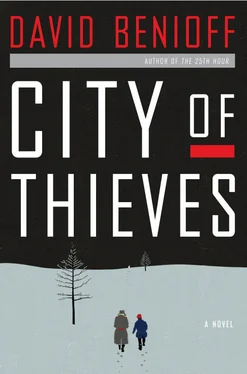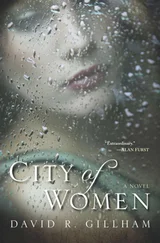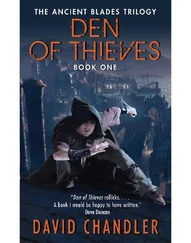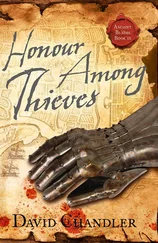Kolya seemed affected in the same way. He squinted in the glare off the snow, pursing his lips to blow great gusts of vapor, as delighted by this trick as a five-year-old.
Spotting a green scrap of paper near the trunk of a grand old birch, he bent down to pick it up. It looked normal enough, a ten-ruble banknote, Lenin’s eyes glaring at us from beneath his broad bald head—except that ten-ruble notes were gray, not green.
“Counterfeit?” I asked.
Kolya nodded, pointing to the sky with one finger as he scrutinized the bill.
“Fritz drops them by the bushel. The more counterfeit notes floating around, the less the real ones are worth.”
“But it’s not even the right color.”
Kolya flipped the note around and read aloud the printed text on the other side.
“ The prices for food items and the necessities of daily life have increased enormously and the black market in the Soviet Union is florishing. ‘Flourishing’ is spelled wrong, by the way. Party functionaries and Jews are working dark deals at home while you at the front have to sacrifice your life for these criminal. ‘These criminal,’ that’s nice. They occupy half the country and they can’t even find someone who speaks the language? Soon you will see the reason, so keep this ten-ruble note. It will guarantee your safe return to a free Russian after the war. ”
Kolya grinned and glanced up at me. “You working some dark deals, Lev Abramovich?”
“I wish.”
“They think these things will turn us? Don’t they understand? We invented propaganda! All this is bad tactics; they’re irritating the people they’re trying to convert. Young man thinks he’s found a ten-ruble note, he’s happy, maybe he can buy an extra slice of sausage. But no, it’s not money, it’s a poorly spelled surrender coupon.”
He speared the note to a tree branch and set it on fire with his lighter.
“You’re burning your chance to come back to a free Russian after the war,” I told him.
Kolya smiled as he watched the note blacken and curl. “Come on. We have a long way to go.”
After another hour slogging through the snow, Kolya prodded me in the shoulder with his gloved fingers.
“Do Jews believe in the afterlife?”
The day before the question would have annoyed me, but right then it seemed funny, so perfectly Kolya, asked with genuine curiosity and apropos of nothing.
“It depends on the Jew. My father was an atheist.”
“And your mother?”
“My mother’s not Jewish.”
“Ah, you’re a half-breed. No shame in that. I’ve always thought I had Gypsy blood in me from somewhere up the stream.”
I looked up at him, his eyes as blue as a husky’s, a smattering of blond hair showing from beneath the black fur cap.
“You don’t have Gypsy blood.”
“What, the eyes? Plenty of blue-eyed Gypsies in the world, my friend. Anyway, the New Testament’s very clear about the whole thing. You follow Jesus, you go to heaven; you don’t, you’re off to hell. But the Old Testament… I don’t even remember if there is a hell in the Old Testament.”
“Sheol.”
“What?”
“The underworld is called Sheol. One of my father’s poems is called ‘The Bars of Sheol.’”
It was very odd to speak openly about my father and his work. The words themselves seemed unsafe, as if I were confessing a crime and the authorities might hear. Even here where the Litburo had no sway, I worried about getting caught, worried about spies lurking in the larches. If my mother were around, she would have silenced me with a look. Still, it was good to talk about him. It made me happy that poems are referred to in the present tense even when the poet is in the past tense.
“What happens in Sheol? They punish you for your sins?”
“I don’t think so. Everybody goes there, doesn’t matter if you were good or bad. It’s just dark and cold and nothing’s left of us but our shadows.”
“Sounds about right.” He scooped up a handful of clean snow and took a bite, let it melt in his mouth. “A few weeks ago I saw a soldier with no eyelids. He was a tank commander, his tank broke down somewhere in the worst of it, and by the time they found him, the other boys in the tank were dead from the cold and he had frostbite over half his body. Lost some toes and fingers, a bit of his nose, his eyelids. I saw him sleeping in the infirmary, thought he was dead, his eyes wide open…. I don’t know if you call them ‘open’ if there’s no way to shut them. How do you stay sane with no eyelids? You have to go the rest of your life without ever once closing your eyes? I’d rather be blind.”
I had not seen Kolya morose before; the sudden shift in his mood made me anxious. Both of us heard the howling at the same time; we turned and looked through the crooked avenues of birch trees.
“Is that a dog?”
He nodded. “Sounds like it.”
A few seconds later we heard the howl again. There was something terribly human in its loneliness. We needed to keep walking east, we needed to reach Mga by nightfall, but Kolya headed off toward the crying dog and I followed without arguing.
The snow was deeper here and soon we were wading through thigh-high drifts. The energy I had felt ten minutes before began to seep away. I was tired again, battling for each step forward. Kolya slowed his pace so that I could keep up. If he was impatient with me, he didn’t show it.
I had my head down so I could choose each footfall—a twisted ankle was certain death now—and I saw the tread marks before Kolya. I grabbed his sleeve to stop him. We were at the edge of a vast clearing in the woods. The glare of sunlight off the hectares of snow was bright enough that I had to shield my eyes with my hand. The snow had been corrugated by dozens of tank treads, as if an entire Panzer brigade had passed through. I didn’t know treads the way I knew airplane engines, couldn’t tell a German Sturmtiger’s from a Russian T-34’s, but I knew these weren’t our tanks. We would have already broken the blockade if we had this much armor in the woods.
Gray and brown heaps lay scattered across the snow. At first I thought they were discarded coats, but I saw a tail on one, an outstretched paw on another, and I realized they were dead dogs, at least a dozen of them. We heard another howl and finally we saw the howler, a black-and-white sheepdog dragging itself off the field, its front legs doing the work its hind legs could not. Behind the wounded animal was a blood-smeared trail more than a hundred meters long, a red brushstroke slapped across a white canvas.
“Come on,” said Kolya, stepping into the field before I could stop him. The tanks were gone, but they had been here recently; the tracks were still cleanly defined in the snow, unblurred by wind. The Germans were near, in force, but Kolya didn’t care. He was already in the middle of the clearing, marching toward the sheepdog, and as usual I hurried to catch up.
“Don’t get too close to any of them,” he told me. I didn’t know why he told me that. Was he worried about disease? Did he think a dying dog might bite me?
When we got closer to the sheepdog, I could see that a wood box was strapped to its back, held in place with a leather harness. A wood post extended straight up from the box. I glanced around the field and saw that all the other dogs wore the same contraptions.
The sheepdog did not look at us. He was intent on reaching the fringe of trees on the far side of the field, where he thought he could find safety, or comfort, or a quiet place to die. Blood dribbled from two bullet holes near his hip and another must have pierced his belly, for something wet and coiled was dragged along beneath him, innards never meant to see daylight. He panted, his long pink tongue dangling from the side of his mouth, his black lips curling back from his yellowing teeth.
Читать дальше












